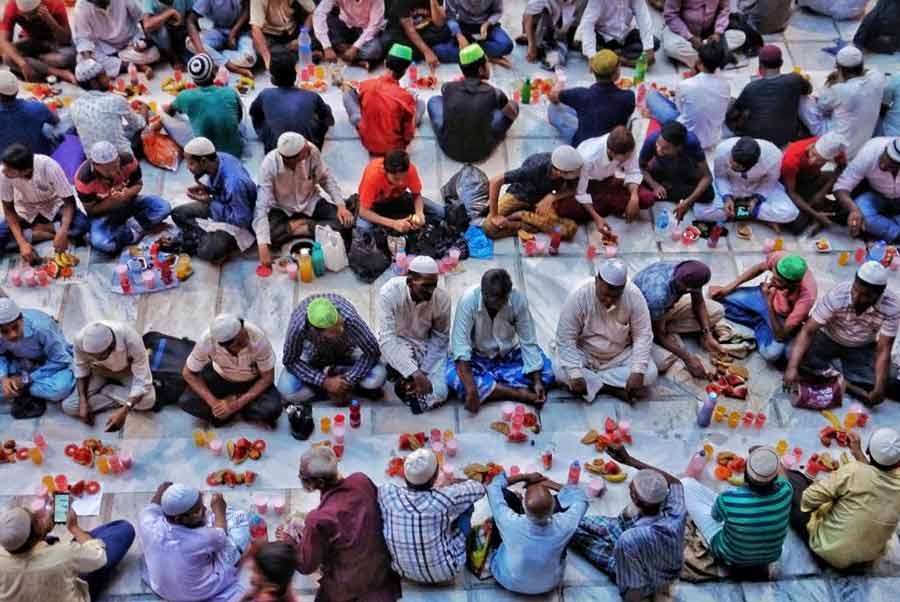When Timon of Athens serves his guests with hot water and rage at his feast, he demonstrates what a feast is not. He disrupts the bonds of community, which a feast, or festival, is meant to deepen. He displays symbolically the falsity of his guests’ friendship towards him through a feast that is not one. This was possible because the expectations around a feast had been passed down the generations, not just in Timon’s world but in cultures everywhere. Festivals and feasts go together; through these a community bonds in joy or ritual mourning. A feast can also be the breaking of a fast together, as the iftar is, reasserting an individual’s relationship with the community and the community’s cohesiveness.
Feasts were mainly religious, but some are secular too, in later times. The generosity and feeling of abundance at their heart allow the host community to invite into the fold members from other social or religious groups as a mark of friendship and respect. In a polarized atmosphere, as now in India, the iftar, for example, can and does become a site for warm encounters. A feast shared across beliefs, languages and ideologies symbolizes the cohesion the Constitution-makers imagined at India’s heart, while on a practical level, it can cement unexpected ties or prompt divisiveness to bare its fangs. At the Banaras Hindu University, a group of students protested against the vice-chancellor’s presence at an iftar hosted by the girls’ hostel. They asked why he should attend an iftar if he had not visited ‘fasting’ events such as Navaratri and Basant Panchami. Silly question. The vice-chancellor had joined the ritual breaking of a fast to help strengthen bonds between communities. In Bengal, the end of the Durga Puja is marked by an exchange of sweets in which everybody is included. This festival traditionally reaches out to a community that is social rather than purely religious. Perhaps the question is not silly. The protesting group wants to break these broader circles and build insurmountable walls between people.
But in spite of their sulking, across the country, people still get together on religious occasions ignoring specific beliefs — at Christmas dinners and Vijaya Dashami as at iftars and on Eid, while in times of want, not festivity, the Sikh langar is open to all. Service, as much as sharing, can create the sacred spirit of the feast. But it may also have less spiritual dimensions. The Bihar chief minister, Nitish Kumar, being invited to, and also hosting leaders of the Rashtriya Janata Dal at, iftar might seem rather startling. Is there a political twist or just the warmth of returning friendship? But the cohesion that comes from breaking bread together in shared joy or sorrow makes political considerations look rather small. India needs more shared feasts, a festival of diversity, breaching the walls of narrowness being so strenuously built by the champions of polarization.











